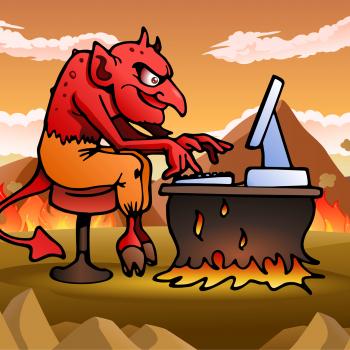
A man sits in a house of worship, struggling with despair, staring at his useless hand. He couldn’t harness an ox, hold a plow, slaughter an animal, or build a shelter. Total ruin for his family loomed. He’d beg, but his wife and children would be sold into slavery.
Others entered into the worship space, with them a teacher, Jesus. He stood before the despairing man. “Stand up. Let us see you.”
He rose reluctantly, expecting to be shamed. Slowly, other conversation ceased.
Jesus looked at the man’s hand, then asked this question to those gathered on that day to worship and honor the Lord God, “What kind of action suits the Sabbath best? Doing good or doing evil? Helping people or leaving them helpless?”
No one answered; their religious teachers having stated clearly that no work must be done this day. The teachers themselves hoped this pest called Jesus would overstep his bounds so they could pounce upon him and declare him evil, boosting their own reputations and power.
“Hold out your hand.”
The despairing man reached with his good hand to lift the worthless one. What had been cold and lifeless grew strong and warm. In silence, he raised it high for all to see.
“You see!” said one of the teachers. “We told you–this Jesus is evil. Its against the Law to heal on the Day of Rest.” They started making plans to silence Jesus.
Now, this story comes from the Gospel of Mark, chapter 3. We find it easy to condemn those teachers for lack of sympathy to the ill and infirm. But, why did Jesus feel the need to antagonize them? Surely he could have waited a day.
Assuming that urgency was not the driving issue, what would it have hurt Jesus to cut the teachers some slack and concede that they had a legitimate point about his Day of Rest activities? He could have gained favor with that attitude and very likely have bought more time for ministry–and even more healings. So, what’s the big deal?
It may be this: This story illustrates Jesus’s reversal of one of the greatest and most destructive of human weaknesses: to refrain from doing good, relieving suffering and opposing evil when faced with powerful opposition that could harm us in return.

Several years ago, a book called The Help made the bestseller lists. Many wondered whether a while woman, Kathryn Stockett, even had the right to write this book, which told the painful stories of black maids who served white households and raised white babies in the Deep South.
Even so, the book was made into a movie that was quite highly rated, and which did a pretty good job of following the original story line. The main white character, “Skeeter” Phelan, a young woman of considerable privilege, found herself in deep sympathy with the those maids.
In time, she earned the trust of some of these women and put together a book of their stories. The greater her sympathies grew, the more opposition she faced from her contemporaries. When the book was published, (even with the author given as “anonymous” in order to protect the women who had spoken out), “Skeeter” became a pariah in her town, with only a few sticking by her side. She paid dearly for seeking healing and justice.
It’s a good story–and makes the same point as did Jesus in the Mark 3 story. It costs to stand up to evil and misused power. Those who question the status quo, especially a status quo that protects the privileged in some way, will nearly always suffer afterward.
Every where we turn, we see oppressed people. Unquestionably, we have to pick our battles. None of us have enough energy to fight all of them. Some of those that really get to me include the continued oppression and systematic mistreatment of women throughout the world.
But as a United Methodist clergy (retired) I keep thinking about the Rev. Mike Tupper and his decision to sleep outside in the Michigan cold winter nights in order to symbolize the closed doors of The United Methodist Church where full inclusion of the GLBTQI community is concerned. As a denomination, we’ve made historic and intentional choices to stand up for the oppressed, but never without long and hard-fought battles to do so. We’ve fought for the laborers and for the women and for the people of color. We’ve split over some of those battles, and reconciled later on some of them.
Now, we battle over those who are differently gendered or sexed. Right now, many of those who have been willing to be the leaders in this fight against this particular oppression have faced their own deaths: deaths of career, livelihood, ecclesiastical standing. Literal deaths and bodies litter the paths as well, particularly because of the scarily high suicide rate of GLBTQI youth.
We now have a candidate for POTUS who has aligned himself with those who call for the death penalty for homosexuals. I do not think that my brothers and sisters in the UMC who wish the keep the doors to ordination closed for homosexuals in any way aligned themselves wish such extremist views. However, those very closed doors continually say, “Either follow my rules or don’t come in.”
And that’s the kind of stuff I think Jesus intentionally stood up to. He broke the rules that kept people out. He paid the ultimate price for doing so.
Those who think the closed doors of the UMC must be opened are also going to continue to pay a big price. I think everyone who enters this battle needs to count the cost. My guess is that the body count has only just begun.












